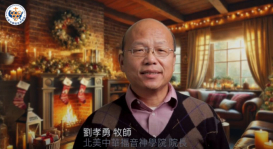OSLO, Norway (AP) - Norway's government proposed lifting a national ban on using human embryonic stem cells for research, saying Friday that the change might help find cures to a broad range of diseases.
Embryonic stem cells have the ability to become any tissue in the body, leading scientists to see them as a possible source of medical breakthroughs. But the research typically involves the destruction of frozen embryos created for in vitro fertilization, a step that stirs passions over the beginning of life.
Norwegian biotechnology law from 2003 bars use of fertilized eggs or stem cells taken from them in research, and requires eggs left over after assisted pregnancies to be destroyed.
The proposed law would allow research on such eggs under strict legal and ethnical limits, including consent from the parents and approval from a national ethics panel, the government proposal said.
"The government believes it is important to use the opportunities offered by science to gain knowledge that can be used to treat serious illnesses in the future," Minister of Health and Care Services Silvia Brustad said in presenting the legislation.
"There is hope that stem cell research could contribute to finding treatments for Parkinson's disease, heart conditions, multiple sclerosis, diabetes, HIV/AIDS, cancer and other ailments," she said.
Brustad also said a new law would be more in line with those of other European nations.
The proposal would not allow scientists to fertilize eggs for use in research, but only eggs deemed as surplus because of poor quality, or because they have been stored in deep freezer for more than the allowable five years. It would also require the research to be completed within 14 days of fertilization or thawing stored eggs.
The bill would also ease restrictions on a fertility procedure called pre-implantation genetic diagnosis, or PGD _ used when parents want to avoid having a child with a lethal or severely debilitating birth defect. That is only allowed with special authorization from a government panel, generally for treatment in countries other than Norway.
The revision would allow a new board, handling only PGD-type cases, to decide whether the risk of a severe, hereditary ailment was great enough to warrant the treatment.
The three-party coalition government of Labor, the Center Party and the Socialist, has a majority of 87 seats in the 169-seat parliament, or two more votes than needed to pass legislation.
However, embryonic research is often hotly debated, with opponents arguing that it is wrong to sacrifice human life, even at the embryo stage, for research. It was not immediately clear whether any of the government's majority backing would object to the amendment.
Copyright © 2007 The Associated Press. All rights reserved. The information contained in the AP News report may not be published, broadcast, rewritten or redistributed without the prior written authority of The Associated Press.




![[Exclusive Interview] A revelation within the brink of life and death — Meg Leung’s mission in Christian art](https://www.gospelherald.com/media/cache/thumbnail/7/21/72163sp_273w_150h_1x_1y.jpg)


